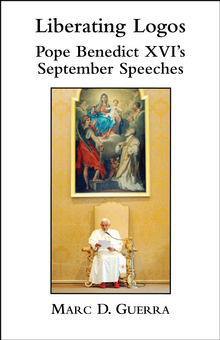St. Augustine's Press
Liberating Logos (HC)
Liberating Logos (HC)
Couldn't load pickup availability
It does not take much daring or imagination to say that Pope Emeritus Benedict XVI was the most erudite and intellectually impressive man to sit in the Chair of St. Peter in several centuries. An academic theologian by disposition and training, for more than fifty years, he has never tired of bringing Catholic wisdom into dialectical engagement with late modernity in a lively and engaging way. Benedict witnessed the events that marked the unfolding of the late modern West from the front: surviving the horrors of National Socialism, observing the widespread social and spiritual turmoil of the ideological revolutions of the 1960s, taking part in the ressourcement and aggiornamento that animated the Second Vatican Council, confronting the rise of Islamo-Fascism, contemplating the human import of Globalization, and soberly addressing the potential De-Christianization of Europe. The Pope, however, not only witnessed these events, he bore witness to them, never shying away from proclaiming the Good News that God’s Eternal Logos “became flesh and dwelt among us, full of grace and truth.”
For those suffering from Benedict withdrawal syndrome, Liberating Logos: Pope Benedict XVI’s September Speeches brings together six important addresses in one volume. The themes of these remarkable speeches are wide ranging: Benedict comments on the denaturing effects of Dehellenization, the true grounds of religious dialogue, the transpolitical and timeless nature of Christianity’s message, the relation of moral and political freedom to truth, the self-limitation of modern reason, and Europe’s and the West’s enduring Christian roots. Each speech offers an unwavering defense of the splendor and majesty of created human reason’s ability to know—and to be liberated by—the uncreated Truth. A source of moral strength and intellectual clarity for a late modern world that increasingly craves both these things, the Pope bracingly challenges modern human beings, Catholic as well as non-Catholic, to be willing to “engage the whole breadth of reason.” This, Benedict reminds us, “is the programme” with which the enlarged vision of Catholic thought, “grounded in Biblical faith, enters into the debates of our time.” Liberating Logos opens a window into the mind and soul of a Pope who remains a man for our season, precisely because he possesses the humility, courage, and faith to be a man out of season.
Share


